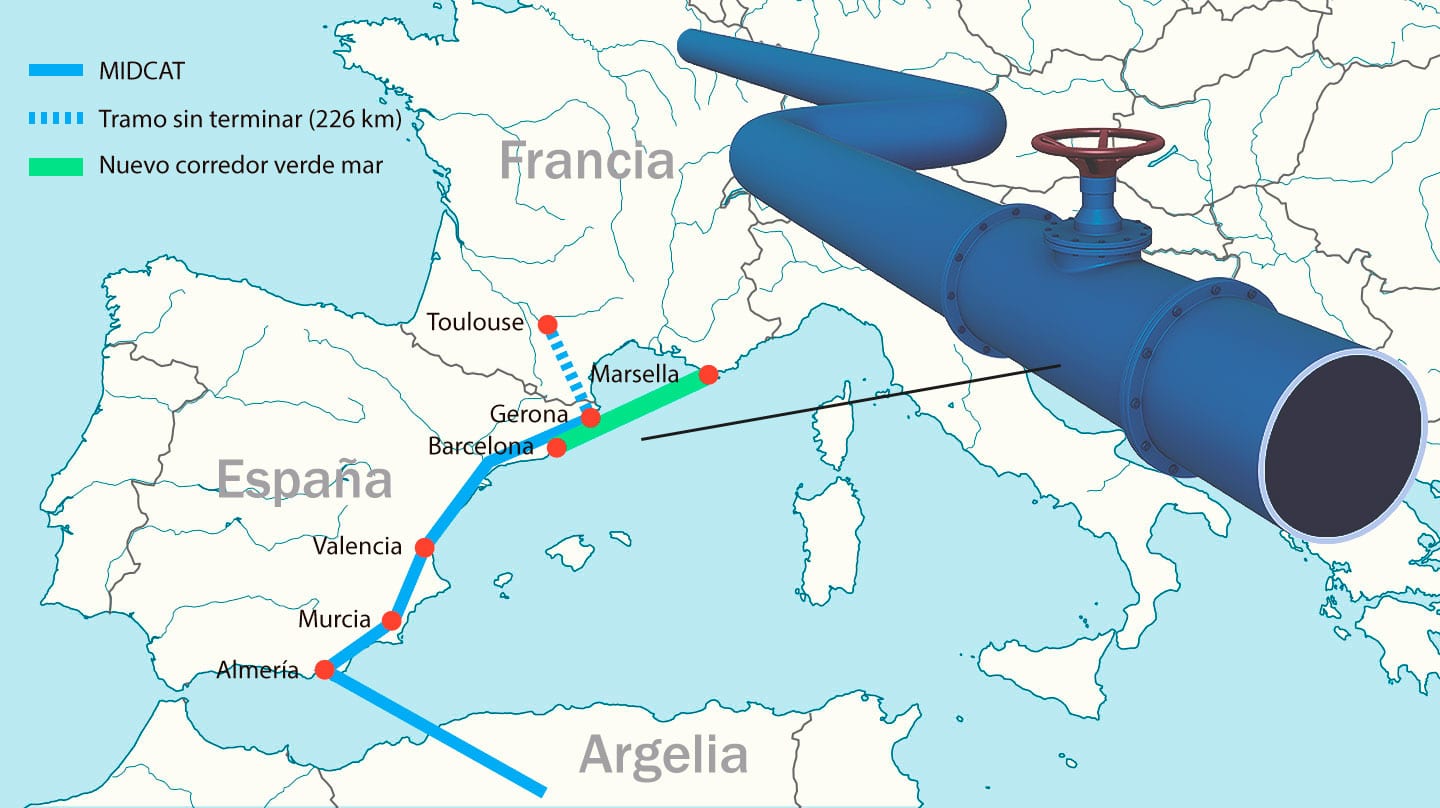A future green energy corridor, a replacement for the Midcat project, will connect Barcelona with Marseille in order to transport green hydrogen and gas during a transition period.
After a meeting in Brussels between the Spanish Prime Minister Pedro Sanchez, French President Emmanuel Macron and Portuguese Prime Minister António Costa, they reached an agreement to replace the Midcat project.
The objective between the three nations is to convert the unfinished gas pipeline (Midcat) linking the Iberian Peninsula with France through the Pyrenees into a green energy corridor between Barcelona and Marseille.
The three nations, Spain, France and Portugal, will negotiate the details of the future corridor on December 8 and 9, 2022 in Alicante.
And it will take place within the framework of EuroMed, a meeting that brings together nine countries of Mediterranean culture and members of the European Union, which will also be attended by the three European leaders.
Prior to the Alicante meeting, the energy ministers of each country will immediately begin preparatory work for the December meeting, in collaboration with the European Commission.
Three fundamental aspects will be defined in Alicante:
- Investment terms.
- Cost sharing.
- Volume of economic resources to make the project a reality.
Barcelona: the nerve center of the project
For its part, the Generalitat welcomed the project positively, making Catalonia and Barcelona a strategic point for consolidating the new European energy structure.
Although Catalonia already played an important role in the interconnections with the use of liquefied natural gas regasification capacity at the Port of Barcelona, it will also play an essential role in the operation of this new green corridor.
The green energy corridor
The project proposes a green and dual interconnection, conceived in a manner consistent with the ecological transition to the use of green hydrogen.
In addition, the corridor will be a good solution to the demand for solidarity with other European countries amid the consequences of gas supply cuts by Russia.
They will also look for interconnections to have a “dual approach”, i.e. not only interconnecting energy sources such as gas or hydrogen, but also boosting electricity interconnections with France.
The green corridor will be about 360 kilometers long, which could take four to five years to build. It is emphasized that it will be a corridor to carry hydrogen and will have limits for gas.
Finally, the Spanish president thanked France for its openness to the project and Portugal’s support, stating that “This is good news for the whole of Europe”.
For its part, Germany expressed its support for the agreement, as did the European Commission and the President of the European Parliament, Roberta Metsola.

